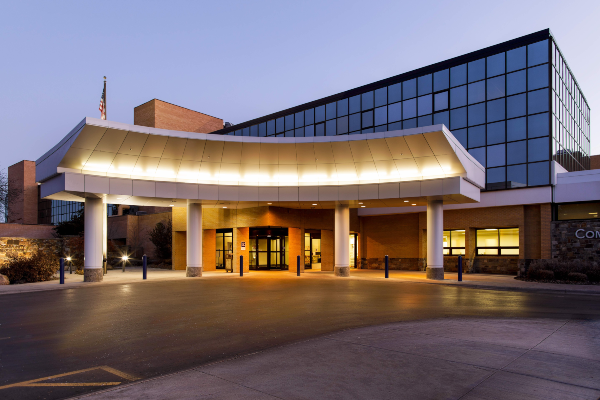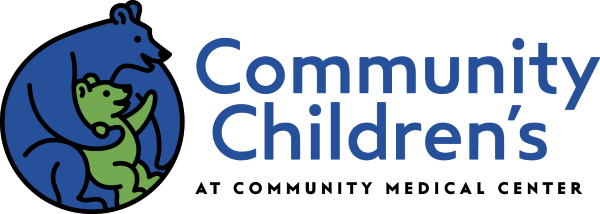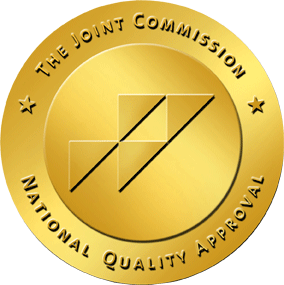Surgical Services

Surgical Services
2827 Fort Missoula Rd.
Missoula, MT 59804
F: (406) 493-3003
- Scheduling Questions: Contact your physician's office.
- Pre-Surgery: (406) 327-4035
- Day of Surgery: (406) 728-4100
About
 Community Medical Center provides comprehensive surgical care to patients throughout Montana. From diagnostic procedures to elective and emergency surgery, our team provides round-the-clock care.
Community Medical Center provides comprehensive surgical care to patients throughout Montana. From diagnostic procedures to elective and emergency surgery, our team provides round-the-clock care.
Procedures are performed on both an inpatient and outpatient basis at Community Medical Center or in our fluoroscopy suite at Advanced Pain & Spine.
If you have had an injury or are experiencing a chronic condition that has left you with pain or limited function, you may want to consider seeing one of our Physical Medicine and Rehabilitation (PM&R) physicians before seeking surgical care. PM&R physicians treat a wide variety of medical conditions affecting the brain, spinal cord, nerves, bones, joints, ligaments, muscles, and tendons. By taking the whole body into account, they are able to accurately pinpoint problems and provide a treatment plan such as physical therapy, pain medicine, wound care, etc. – only recommending surgery when absolutely necessary.

For our smallest patients, Community Children's is pleased to offer pediatric surgeons and pediatric anesthesiologists who bring special training and experience to provide the safest care for infants and children undergoing surgery. For children undergoing MRI scans, joint injections and other procedures to be done without intubation we offer a pediatric sedation program to avoid potential negative effects of general anesthesia on the developing brain.
Surgical Services
- Colon & Rectal Surgery
- Ears, Nose & Throat
- Endoscopy
- General Surgery
- Gynecology
- Orthopedics
- Pain Medicine
- Plastic & Reconstructive Surgery
- Podiatry
- Pre-Surgery / Admission Testing
- Robotic Surgery
- Spine & Neck Surgery
Preparing For Your Surgery
Surgeons order routine lab tests before you are admitted to the hospital or before certain outpatient procedures. The tests help find possible problems that might complicate surgery or may cause surgery to be canceled or delayed if not found and treated early. Patients should schedule their Pre-Admission Testing appointment about a week before surgery.
Patient Guide to Surgery (PDF)
Patient Procedure Videos
EMMI, our interactive patient education system, will help you have a better understanding and level of comfort about an upcoming surgical procedure. You'll learn how a procedure works, what to expect when you go home, what to do before and after your surgery, the risks, benefits and alternatives. Our hope is that you will be more knowledgeable and confident throughout your treatment process.
Video programs are available on individual procedure pages or search our video library.
*Don't see a video for your specific surgery? Contact us at (406) 327-4035.
Eating
It is very important for every patient to have an empty stomach before any surgery or procedure that requires anesthesia, for two reasons:
To prevent nausea
To keep any food or liquid from getting into the lungs.
Our recommendations about when to stop eating and drinking are different for each age group. Be sure to check instructions from your physician or from your pre-surgery appointment.
Day of Surgery
Your comfort and safety is our top priority. We ask that you partner with us in your care by asking questions, letting us know about how you are feeling and by being aware of and following safety practices.
Arrival Time
Arrive 2 hours* before your scheduled surgery. If you are scheduled at 7:30 am, arrive at 6:00 am.
*Pediatric patients should arrive 1 hour before scheduled surgery.
Visitors
Visitation is limited at this time, view our current visitor policy (text link). Visitors must be 18 years old or older, and must be screened each time they enter, undergo hand hygiene and wear a hospital supplied mask over the nose and mouth for the duration of the visit. If they have a positive screen, they are not allowed to enter.
Visitors are not allowed to eat or drink indoors at any time. Visitors who are found not wearing a mask during their visit will be asked to leave.
One visitor will be permitted for the pre‐operative and post-operative periods. Visitors will not be allowed to wait in the hospital during the surgery / procedure and should leave after the patient goes back to surgery. Our team can provide families and visitors with updates via phone call. Patients will have access to iPads for FaceTime conversations.
What to Bring
Wear comfortable clothes. Bring music, a favorite blanket, something comforting. LEAVE all jewelry and valuables at home or with a loved one.
Keep personal items that you need, such as dentures, eyeglasses and hearing aids, in protective cases when not in use. We cannot take responsibility for these items.
If you have questions or concerns the day of surgery, please call (406) 728-4100.
After Surgery
Managing Pain
No matter whether surgery is a minor outpatient procedure or a major operation requiring days in the hospital, patients and family members want to know what to expect in terms of pain afterward. Most of us will experience some pain or discomfort after a procedure, but it should never be unbearable.
Patients will be given a prescription to have filled at your pharmacy after surgery. Your care team will review pain control including non-medication alternatives.
Post-Surgical Complications
Surgery comes with some degree of risk. It is possible you could experience an unexpected complication once you return home after surgery. It is important that you follow your surgeon’s discharge instructions to reduce your risk of complications as you recover from surgery at home.
Some complications are minor and will go away without any further intervention. Others are more serious and require that you contact a medical professional right away. If you experience any of the following symptoms, call your surgeon's office – after hours or on the weekend, call our free 24-7 Nurse on Call at (406) 327-4770, visit Community FirstCare or the Emergency Department.
Post-Surgical Complications that Require Medical Attention:
- Constipation
- Depression
- Fever higher than 101 degrees Fahrenheit
- Foul-smelling discharge from the incision
- Incision that comes apart
- Pain that gets worse instead of better
- Persistent vomiting or diarrhea
- Shortness of breath
Nationally Recognized

The Joint Commission
Community Medical Center has earned The Joint Commission’s Gold Seal of Approval®. This award demonstrates the hospital’s commitment to the highest-quality safety and care of patients, and recognizes compliance with The Joint Commission’s strict national standards.
Accreditation Programs:
• Hospital
• Laboratory
Advanced Certification Programs:
• Advanced Certification in Perinatal Care
